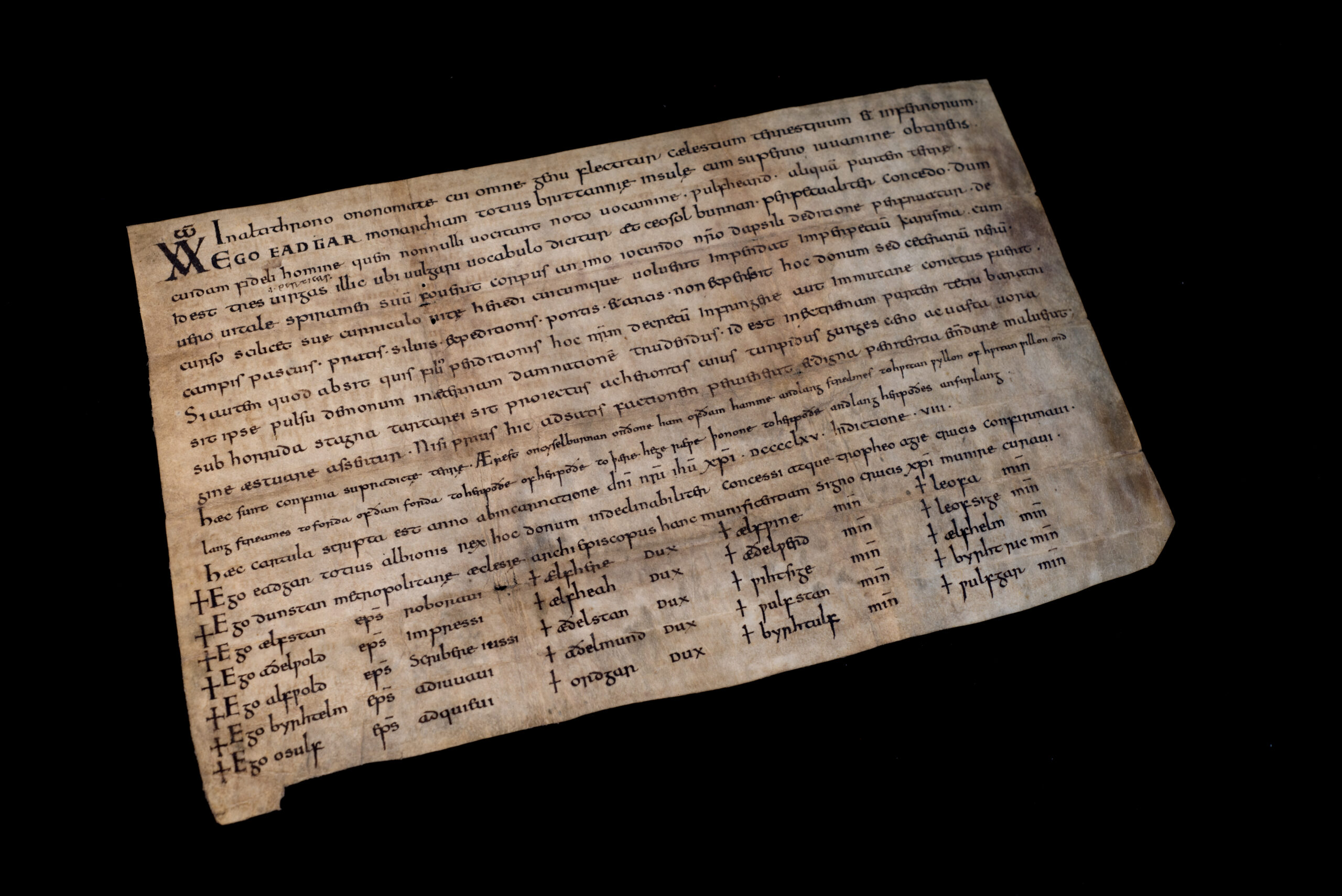In July we were joined by Caeron and Eve for a four week work experience placement. During their time with us, we asked them both to reflect on some of the interesting things they came across from the archive. Today Caeron explains his favourite items…
—
My favourite part about work experience was being able to explore the archives. As visitors to the Dorset History Centre don’t get to enter the full archives physically it felt like a privilege to be trusted with original, irreplaceable materials. All the archival material was interesting with each document showing a different time and life, but my favourite was the locked section containing the archives valuable or fragile documents and objects that they need to keep ultra safe and off-limits to the public which made the experience even more special. There were a couple of objects that really stood out to me.
—

—

The other object I enjoyed seeing was a grant given to Wulfheard of Cheselborne by King Edgar in 965 [D/FSI]. This is the archives’ oldest document, so I felt very honoured to be able to see it. King Edgar was part of a line of kings credited as the first kings to unite the whole of England, with Edgar often being referred to as Edgar the Peacemaker. This grant presents Wulfheard with land in exchange for his faithfulness over time. Edgar was so powerful at this time that the grant came with a curse for those who broke it and came with Edgar’s mark and possible signature. I found it astonishing that this grant has lasted in such good condition for over a millennium. This grant must have held significant power and shows us that the people mentioned in the grant were powerful in this period.
—
This was guest blog written for Dorset History Centre by Caeron Henly. If you are interested in the 2026 work experience placement, information will be circulated in spring 2026 about how to apply.

